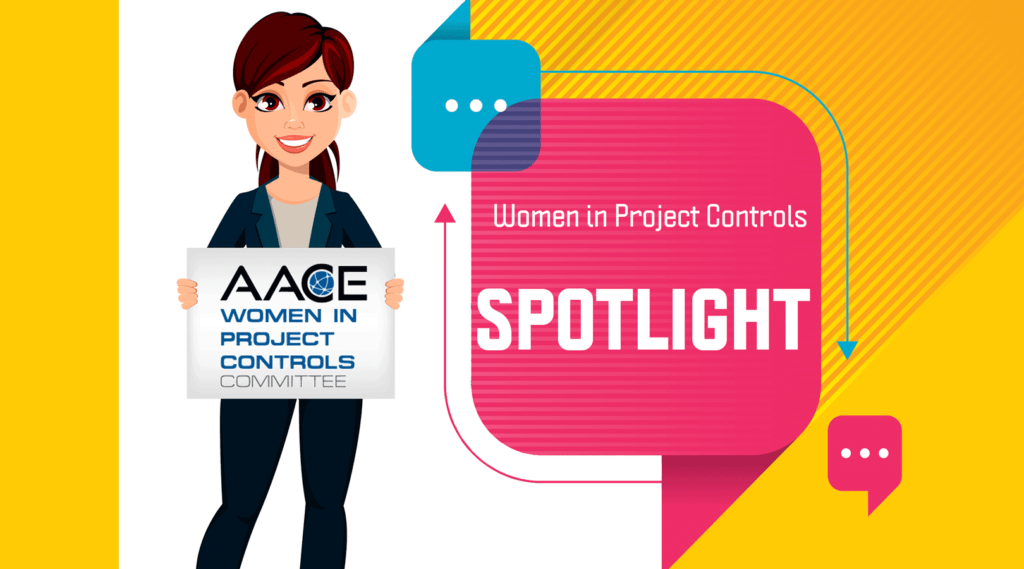Did Project Controls choose you or did you choose Project Controls?

An interview with Priyanka Deka, Ph.D., Environmental and Conservation Sciences turned Project Scheduler
Q: Hi Priyanka! You are a doctorate in Environmental and Conservation Sciences but embraced the huge career change to project scheduling. How did that career epiphany happen?
A: I was born in India, in the city of Guwahati in the northeastern part of India, where I completed my undergrad and my master’s degrees in biological sciences. After my master’s, I wanted to engage in a field that has a lot of social impact, so I decided to pursue at Ph.D. in environmental and conservation sciences from the North Dakota State University. The Environmental Science program was part of the Civil Engineering faculty, and I ended up taking and teaching courses in civil engineering as part of my doctoral studies. One of the courses required the students to make a schedule for a project, and that’s where I discovered the field of scheduling and Primavera P6!
Q: It really does sound like fate that you found scheduling! How did decide on jumping into an interesting but unknown field though, after all the post-graduate education?
A: After I obtained my Ph.D., my husband and I decided to move to New York from North Dakota. I considered finding a job in environmental sciences, but it just didn’t fit with the new cadence of life in a new city, so I ended up working, as a junior project scheduler for my husband’s employer, JCMS, Inc., a construction management company, where he works in project controls.
Q: How did you learn the ropes of project scheduling?
A: My expectations for achievement were low in the very beginning. I thought working as a project scheduler would be just a brief stint for me while I searched for something else in environmental science. However, JCMS gave me training and coaching in scheduling and on using the P6 software, as well as other different aspect of project controls. That’s when I felt like I chose project controls, but project controls chose me as well. I found project scheduling extremely interesting and fulfilling, even more so than my Ph.D. studies!
Q: That is amazing! How was that learning experience?
A: I felt like I had to work twice as hard as my coworkers to deliver with the same quality of work, but it was so rewarding to see the products be recognized. I started in JCMS as a junior project control scheduler, and 3 years later I was promoted to project scheduler! I am proud of this achievement – just because my education was a different background, I managed to overcome the obstacles and pursued my career calling. I felt that my decision was validated.
Q: Did you have any regrets leaving the environmental science education behind?
A: Actually, I never quite gave up on environmental science. I’ve always wondered if I could somehow combine both passions of mine – integrating environmental science with scheduling. I did some literature review and discovered that there was very limited progress made on monitoring carbon emissions in a project. We developed a novel methodology of quantifying and monitoring carbon emissions associated with materials and construction methods at an activity level of a project schedule.
Q: That indeed is an interesting angle to look at carbon emissions. Tell us more about it please!
A: My husband and I are actually working on this research together; we are so passionate about it we work on it on our weekends! We came up with a technique to monitor carbon emissions in a project schedule, by using a “cradle to grave” practical use approach of Life Cycle Assessment (LCA). In a more traditional cost-based approach: if a steel rebar costs X dollars, and therefore that represents Y amount of carbon emissions. In scheduling though, we start tracking carbon emissions from raw material acquisition, production, to transportation and delivery so that we understand the complete picture of the total carbon footprint associated with the steel rebar. We further consider all the impacts associated with installation of the rebars in structural members. We even tracked the carbon footprint associated with commuting by people involved in such construction operations. Similarly, the same approach is followed for all other materials and equipment used in the project. This is a holistic approach where all aspects of the project are considered.
Q: This is indeed a novel methodology! What’s the status of this research now?
We presented and published our work at a couple of conferences, including the Project Controls Expo held in Washington D.C. in October 2022. During this conference, we realized that most groups working on monitoring carbon emissions in construction management did so through quantity takeoff and construction estimating. However, in addition to quantity take-off, our method also allows the users to assess planned versus actual emissions over time, similar to earned value management approaches. We received very good feedback in these sessions!
Q: You have an adventurous spirit and that is very inspiring. Who has been your role model in your achievements?
A: My mother is definitely my pillar of strength. My dad had passed away a long time ago, and my mom became a single parent looking after me and my younger sister. She worked long hours to support us and instilled in me the importance of hard work and honesty. I’m extremely grateful for what I’ve learned from her, and the freedom that she has given me to choose my own passion and destiny.
Priyanka Deka is a project scheduler at JCMS Inc. working on MTACD East Side Access, which is a megaproject in New York City. In her spare time, she is currently working on a research project for materials and methods of lunar construction for NASA – National Aeronautics and Space Administration. This work is aligned with NASA’s goals of developing lunar habitat. She is also an avid wildlife photographer.
Rate this post
Click on a star to rate it!
Average rating 4.9 / 5. Vote count: 24
No votes so far! Be the first to rate this post.


absolutely fantastic!
All females particularly Construction professionals should listen my brief talk in You Tube –
How Females can outshine men in the construction industry. on 25.03.2021
A.L.M.Ameer-All about Quantity Surveying.
The link is : https://www.youtube.com/channel/UCKu-DCoQNYwMLlWMmIwa2UQ
Very inspiring
Its realy an inspirational talk. Pioneering woman empowerment globaly
Thank you for featuring me!